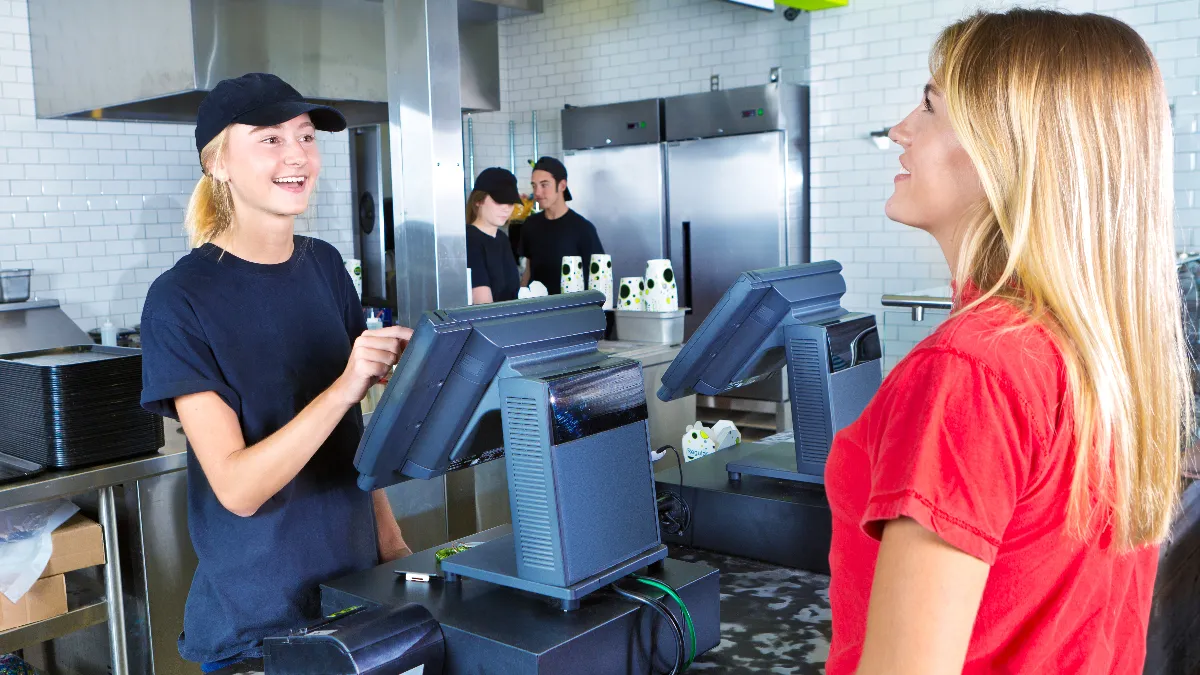Dive Brief:
- New data from Black Box Intelligence indicates teenagers, age 18 years or younger, comprise a larger fraction of the restaurant labor force than in 2019. Teenagers made up 17% of the limited-service workforce in 2019 and 24% as of the end of Q3 2021.
- The shift in workforce composition was less dramatic, but still evident, in the full-service category. The percentage of hourly, non-management employees 18 and younger in full-service was 4.6% in 2019, compared to 7.2% now.
- The relative increase in teenage employment may be a result of labor pressure in the food service industry. The industry is over 784,000 jobs short of compared to February 2020 employment levels and is also experiencing an all-time-high quit rate.
Dive Insight:
While the labor force participation rate for adults over the age of 20 is still lower than in February 2020, teens aged 16 to 19 increased their participation in the labor force, according to the Bureau of Labor Statistics.
The 25- to 34-year-old age group had the biggest reduction in share of both limited-service and full-service employees during that time frame, Black Box found. These employees may have family obligations and are also leaving the industry in pursuit of other opportunities that may include better working hours, higher pay, less safety risks and less customer harassment.
Some concepts have shifted their recruitment efforts to focus on teens specifically. Curry Up Now is offering incentives to appeal to teens, such as flexible scheduling and mentoring programs, while Layne's Chicken Fingers is promoting teens to higher-paying management positions.
Though the turnover rate tends to be higher for younger workers, there are benefits restaurants targeting teen employees. Teenage workers don't usually require time off for obligations like child care, which can benefit restaurant operators looking for consistent scheduling.
The labor force composition shift has created somewhat of a debate over how aggressive the industry should be about targeting teens for their employment gaps. Some states have even reexamined their child labor laws as service employers struggle to retain workers at the prevailing wage.
The Fair Labor and Standards Act states that teens as young as 14 can work in restaurants during non-school hours, and several franchisees, including from McDonald's and Burger King, have recruited accordingly. One McDonald’s owner told Business Insider young workers have a strong work ethic and are technologically savvy.









